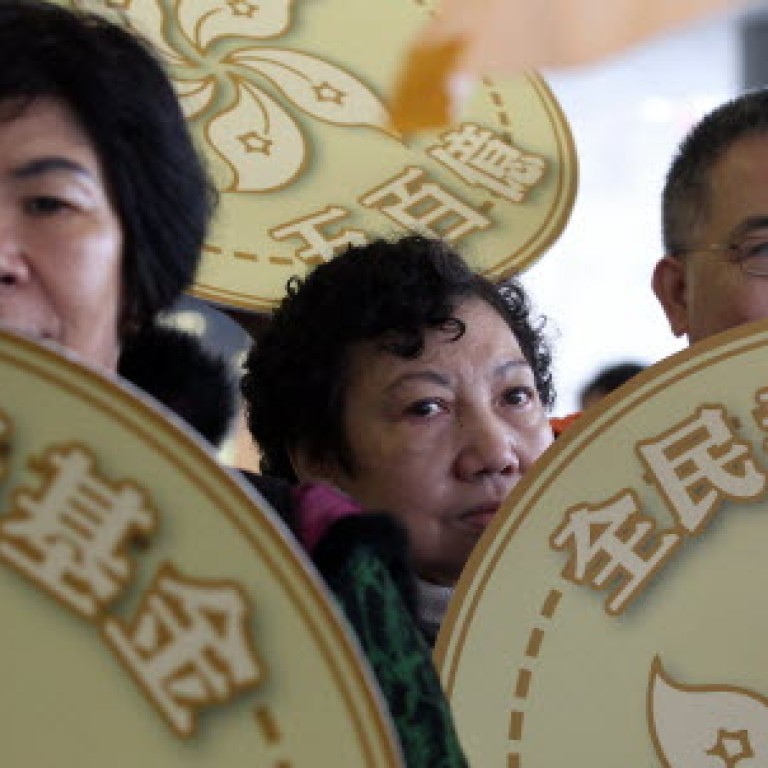
Future Fund plan cringe-making and embarrassing
“Asking your fund manager to invest in the same portfolio is the safest strategy.”
Professor Liu Pak-wai, Chinese University
Almost everything in the recommendation to establish a Future Fund by the Working Group on Long-Term Fiscal Planning is cringe-making and embarrassing. The report is at times superficial, at times naive; but never can it be accused of fulsome quality.
I cringed when I heard a hapless working group member interviewed on RTHK’s Today programme struggle to explain the fund. Mike Weeks gently asked the question four times before we seemed to learn that it is just a different way of investing the old Land Fund.
The working group not only missed the boat, but also the train, plane and bicycle
In fact, splitting our reserves into a series of professionally managed hypothecated funds would be an excellent way of using Hong Kong’s reserves for Hong Kong people. We could have a health fund, a retirement fund, or an education fund; each developing a speciality to global standards, and most importantly, self perpetuating.
This column has railed for the government to use its enormous reserves to do bold things – as Singapore has done with its HK$1.7 trillion provident fund. The working group not only missed the boat, but also the train, plane and bicycle.
To lock up the Land Fund as a ring-fenced, Faberge nest egg to grow but not to be spent for the benefit of Hong Kong people, relegates it to a mere bauble. Something for future financial secretaries to stroke on a rainy day, while saying, “my precious”.
I cringed at Professor Liu’s comment that the investment philosophy was safety first. Safety has no place in investment parlance. “Investing a portfolio to exact the maximum return at the minimum tolerable measured risk” is professional wording. The language of the report exposes the hollow ring of a 1980’s textbook.
And did I cringe at the working group report’s opening title? “Saving for the Future”. He-llo? We will have reserves of HK$820 billion next year, equivalent to the size of Hungary, the 59th biggest economy on the planet.
Has the working group forgotten that the reserves are an expiring option? They become worthless in 2047 when Beijing will acquire the assets in return for its overall protection and policies. So we need to use them for Hong Kong people while we have the right to do so. Without adding another dollar to the reserves, we can spend HK$25 billion to HK30 billion a year over the next 32 years and still have change.
I know that the working group is worrying about big, hand-wringing, teeth-gnashing, bottom-clenching trouble ahead. But if things look bad for us with our reserves, what about the fiscal future for France? India? Greece? Japan? Indeed mainland China?
To speculate that the reserves will dwindle to crisis levels is wildly inaccurate. You cannot plan for abnormal and temporary setbacks, such as the next species-threatening plague or global financial meltdown. If we eliminate the retirement age, raise taxes (from the lowest in the developed world), and add a few fat cats to the tax base, we press delete on the working group’s assumptions.
I especially cringe as I see sharp-suited fund managers circling the working group like wolves stalking grazing sheep. I can see our fund filling with unnecessarily complex products, at unnecessarily high fees, mirroring a common magpie chasing bright, shiny objects.
I squirmed as I remembered how many “sophisticated” investors were sucked into the dot com and sub prime bubbles. You can smell the fear in an inexperienced institutional investor before you can see him.
I cringed that there was no mention of historical analyses of assets, no asset class breakdown, no objectives, guidelines or restrictions for the fund – all which should have been in a vision-level report.
No mention was made of in-house management – a current trend followed by sovereign wealth funds from Australia to Norway. No mention was made of models like Abu Dhabi, Chile, South Korea or Singapore; even Beijing has successfully run a sovereign fund in the past decade.
A camel is a horse designed by a committee. Only one working group member was from industry, an insurance actuary, certainly an important skill to consult but not one to establish a fund. A mixed bag of civil servants and academics are not the correct working professionals for this working group. Nor are the self-serving committees of chief executives, themselves years away from the coal face of the markets, that make up the irrelevant Financial Services Development Council.
Planning a Future Fund will require veteran professionals who have seen several economic cycles, have learned to be street smart, and who are unfazed by past performance, having heard all the stories before.
Even on government pay scales we can afford them.

